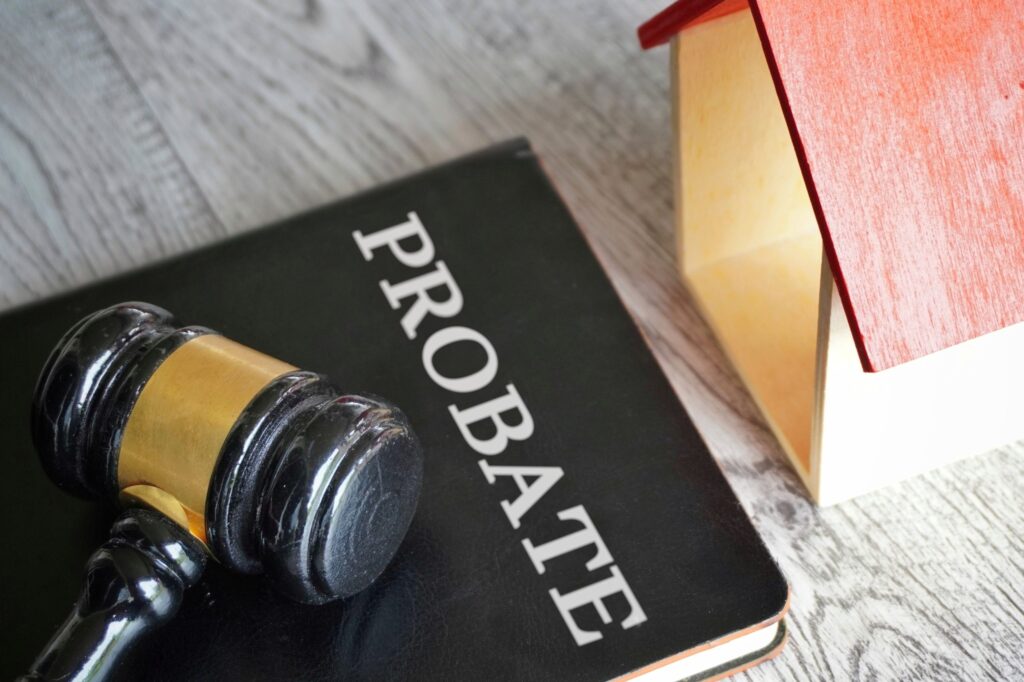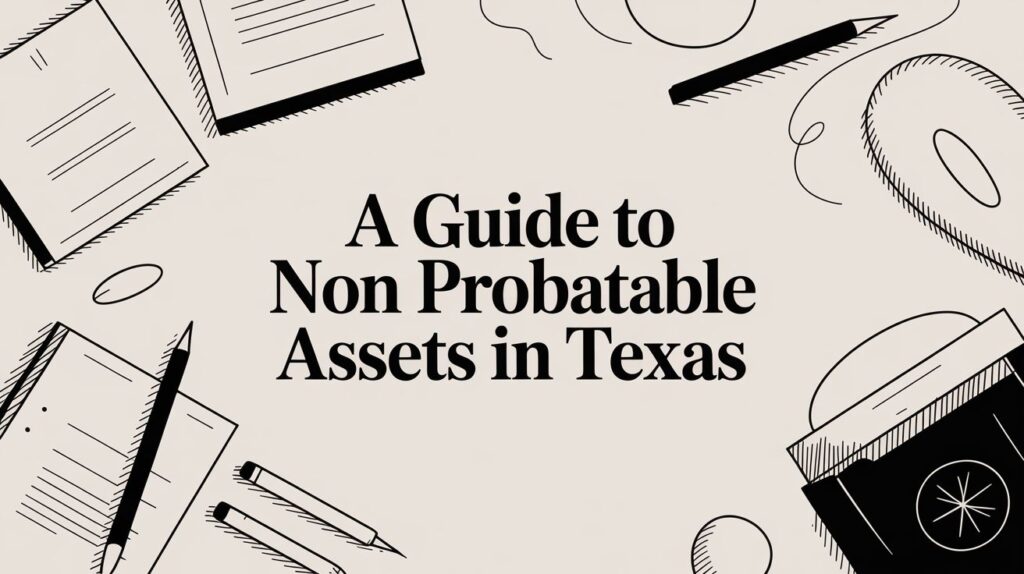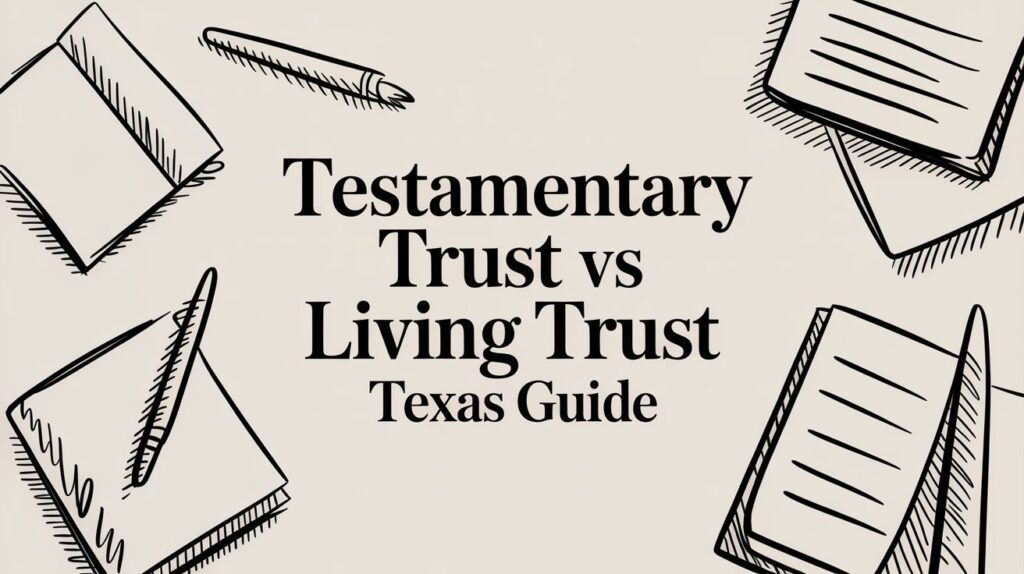If you’re asking yourself, “Do I need to probate to sell a car Texas?”, you’re probably dealing with the loss of a loved one and trying to sort out their affairs. Maybe it’s your parent’s old pickup truck, a grandparent’s sedan, or a car left behind by your spouse. In the middle of the emotional weight of loss, the legal process can feel overwhelming, especially when it comes to selling personal property like a vehicle. This guide breaks it down clearly and thoroughly so you can understand whether probate is required to sell a car in Texas—and what to do next.
You don’t need a law degree to handle this, but you do need the right information. We’ll walk you through real scenarios, clarify what the Texas Department of Motor Vehicles (TxDMV) requires, and help you avoid probate delays whenever possible.

When Probate Is Required to Sell a Car in Texas
The key factor in determining whether probate is required to sell a car in Texas is simple: Who legally owns the title?
If the deceased person was the sole titleholder of the vehicle, and no other legal ownership or transfer designation exists, then yes—you likely need to go through probate to sell the car. That’s because you need legal authority to transfer the title from the deceased’s name to a buyer, and the state won’t let just anyone do it.
But like everything in estate law, there are exceptions—and in Texas, there are a few smart ways to avoid full-blown probate.
Real Example: Carl’s Granddaughter and the Old Chevy
Carl, a retired mechanic in San Antonio, left behind a 1989 Chevy Silverado that had been parked in his garage for years. When he passed away, his granddaughter Olivia wanted to sell it. But Carl hadn’t made any formal arrangements—no will, no co-owner on the title, and no transfer-on-death designation.
Olivia found a buyer online, but when they went to transfer the title, the DMV clerk told her the car was still legally in Carl’s name and she had no authority to sell it. She asked, “Do I need to probate to sell a car Texas?” The answer was yes. Since Carl was the sole owner and left no legal direction, the car became part of his estate and had to go through probate before Olivia could legally sell it.
What Is Probate and Why Does It Matter?
Probate is the legal process used to settle a deceased person’s estate. In Texas, this includes validating any existing will, appointing an executor or administrator, paying debts, and distributing assets to heirs. Vehicles, like houses or bank accounts, are considered part of the estate unless legally excluded.
When it comes to selling a car, probate matters because you need someone with legal authority—typically a court-appointed executor—to sign over the title. Without that authority, the sale can’t move forward legally.
When You Might Not Need to Probate to Sell a Car in Texas
Texas law does provide some probate shortcuts and alternatives that may allow you to transfer or sell a car without going through the full probate process. Let’s explore some options.
Transfer on Death (TOD) for Vehicles
Texas allows you to designate a Transfer on Death (TOD) beneficiary for a car. If the deceased person completed the proper form with the TxDMV before they passed, the vehicle automatically goes to the named beneficiary without going through probate.
If you’re the TOD beneficiary, the title is legally yours. You can retitle the vehicle or sell it without ever filing in probate court.
Important: The TOD must be properly recorded on the vehicle title prior to the owner’s death. You can’t backdate it or do it after they’ve passed.
Co-Owned Vehicles with Rights of Survivorship
If the car was jointly owned and the title states “John Doe OR Jane Doe,” then the surviving co-owner may already have legal ownership and can sell the vehicle. Texas recognizes rights of survivorship in jointly owned property, including cars, when clearly indicated.
If the title says “AND,” then both parties must sign off on any sale—so if one party is deceased, you’ll likely need probate or other legal documentation to proceed.
Small Estate Affidavit (SEA)
If the total estate is small (under $75,000 in non-exempt assets), you might qualify to use a Small Estate Affidavit instead of full probate. The SEA is a simplified court process that allows heirs to access certain assets, including vehicles, when no will exists.
You must file the SEA in court and get it approved. Once approved, you can present the SEA, death certificate, and other documents to the DMV to transfer or sell the car.

Affidavit of Heirship
In some situations, especially in rural counties, you might be able to use an Affidavit of Heirship for personal property like a car. This document, signed by disinterested witnesses and notarized, lists the legal heirs of the deceased.
The TxDMV sometimes accepts this affidavit for title transfers, although it’s not a guarantee. Some clerks will insist on probate letters or a court order. So always check with your local county tax office before relying on an affidavit alone.
Step-by-Step: How to Sell a Deceased Person’s Car in Texas
Let’s walk through the steps, assuming there’s no TOD or co-owner and probate is required.
Step 1: Open Probate and Get Appointed as Executor or Administrator
You’ll need to file a probate application with the county court where the deceased lived. Once you’re appointed as executor (if there’s a will) or administrator (if there’s not), you’ll receive “Letters Testamentary” or “Letters of Administration” giving you legal authority.
Step 2: Locate the Vehicle Title
You’ll need the original title or a duplicate from TxDMV. The title must be in the deceased’s name.
Step 3: Prepare the Sale Documents
Once probate authority is granted, prepare the title assignment and necessary DMV forms, including:
- Application for Texas Title (Form 130-U)
- Certified copy of the death certificate
- Letters Testamentary or Administration
- Valid ID for the seller and buyer
- Bill of sale (optional but helpful)

Step 4: Complete the Sale and Transfer the Title
Sign the title over to the buyer using your authority as executor or administrator. The buyer then submits the title, forms, and payment to the TxDMV or county tax office.
Real-Life Story: Avoiding Probate With Planning
Let’s rewind to a different story—Marcus, a retired Air Force veteran in Dallas, had three grown kids and a well-maintained 2012 Ford Explorer. Knowing he wanted to make things easier, he completed a Vehicle Transfer on Death Beneficiary Designation and named his son Julian.
When Marcus passed, Julian brought the death certificate and transfer paperwork to the DMV. Within days, the title was transferred into his name. No probate needed, no attorney fees, no red tape. He sold the SUV a month later without any legal headaches.
DMV Requirements: What They Ask For
So what does the Texas DMV want to see when a car owner passes away?
Here’s a general checklist if you need to probate to sell a car in Texas:
- Death certificate (certified copy)
- Letters of administration or testamentary
- Vehicle title
- Signed Form 130-U
- Buyer’s ID and information
- Odometer reading (for vehicles under 10 years old)
Always call your local DMV office to confirm. Requirements can vary slightly depending on the county.
Selling Through a Dealership or Online Marketplace
If you’re handling a probate estate, you might choose to sell the vehicle through a dealership or an online platform like Carvana, AutoTrader, or Facebook Marketplace.
Just remember: even if the buyer is a business, the same legal steps apply. You can’t skip probate just because it’s a dealer purchase. The title must be legally transferred from the deceased to the estate representative before any sale.
Special Considerations for Classic or Collector Cars
Vehicles with historical value or collector status might have added complications. If a car is worth more than $75,000 and part of a larger estate, probate is almost always required. You may need an independent appraisal, and the value of the car could impact estate taxes or heir distributions.
Make sure to disclose the true condition, maintenance history, and any legal hurdles to the buyer. Transparency is crucial, especially if you’re selling on behalf of an estate.
Can You Scrap or Donate a Deceased Person’s Car Without Probate?
Not exactly. Even junkyards and nonprofit donation centers require the legal title. If the title is still in the deceased’s name, you’ll need legal authority to sign off. This might mean going through probate or presenting alternative documents like an SEA or affidavit, depending on the situation.
Skipping the legal process and trying to sell or donate a vehicle without proper documentation can lead to liability issues or DMV penalties.
How Long Does Probate Take for a Car Sale?
The timeline varies. In Texas, independent administration (the most common probate type) usually takes 60 to 120 days for straightforward cases. But if there are disputes, debts, or missing documents, it can take much longer.
If you’re only probating the car and no other assets, you may qualify for a faster route like Muniment of Title, especially if a will exists and there are no debts.

Final Thoughts: Do I Need to Probate to Sell a Car Texas?
So let’s answer the core question: Do I need to probate to sell a car Texas? In many cases, yes—but not always.
If the car was in the deceased’s name only, and no co-owner or beneficiary was named, you will likely need to probate the estate to gain authority to sell it. But there are ways to avoid probate with some thoughtful planning: Transfer on Death designations, co-ownership with survivorship rights, and simplified court filings like the Small Estate Affidavit can help families avoid long delays.
The best advice? Don’t guess. Check the title. Talk to the DMV. Speak with a probate attorney if the estate is more complex. And above all, take care of things the right way—because doing it legally now saves major problems down the road.








